Maurice Quentin de La Tour; Pierre Mignard; Hyacinthe Rigaud; Orest Kiprensky; Franz Krüger; George Dawe
For some Russians of the 18th-19th centuries, French grammar changed into the primary variety of grammar they discovered; even so, it turned into first often taught by using fraudsters and former convicts. How did French turn into de rigueur among the Russian nobility?
When Prince Golitsyn, the Governor customary of Moscow, bought angry and began cursing, his topics have been nervous but could hardly cover their smiles. He used the most appalling swearwords but uttered them with the elite French pronunciation.
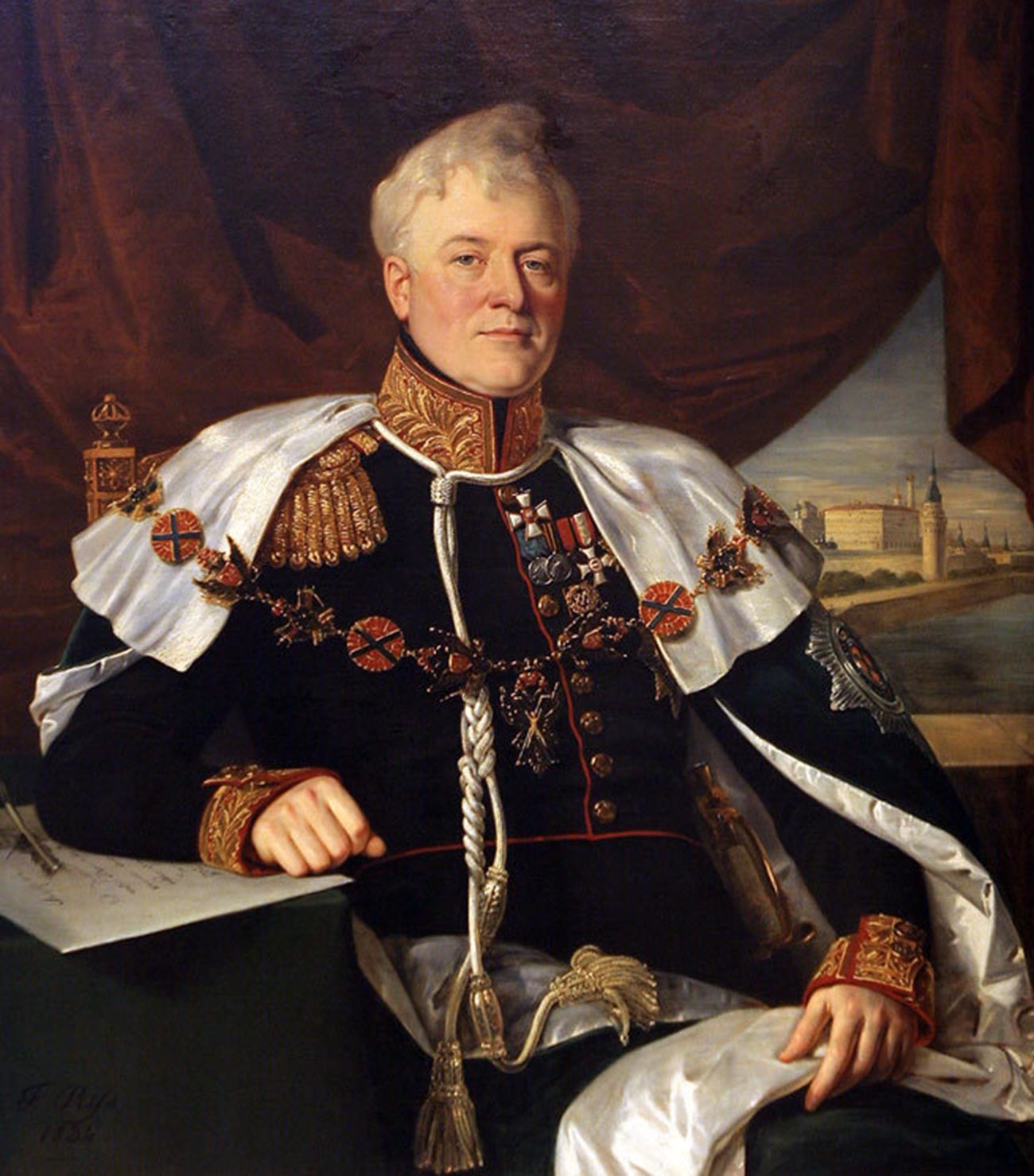
The lustrous Prince Dmitry Golitsyn (1771-1844), the Moscow Governor usual. Portrait through François Nicholas Riss (1804-1886).
François Nicholas RissThe factor is, Prince Dmitry Golitsyn's (1771-1844) mother tongue turned into not Russian, but French. He spent most of his young life in France, and when in 1820, he grew to be the Governor typical of Moscow, everybody noticed that he spoke Russian with a thick accent and wrote in Russian with grave errors.
For the nineteenth-century Russia, this become average, as a result of all contributors of the the Aristocracy spoke French to every other, and even the defense force battle with Napoleonic France handiest temporarily stemmed this habit, however under no circumstances stopped it. here are the factors for this.
1. The Russian the Aristocracy needed a language servants would now not take note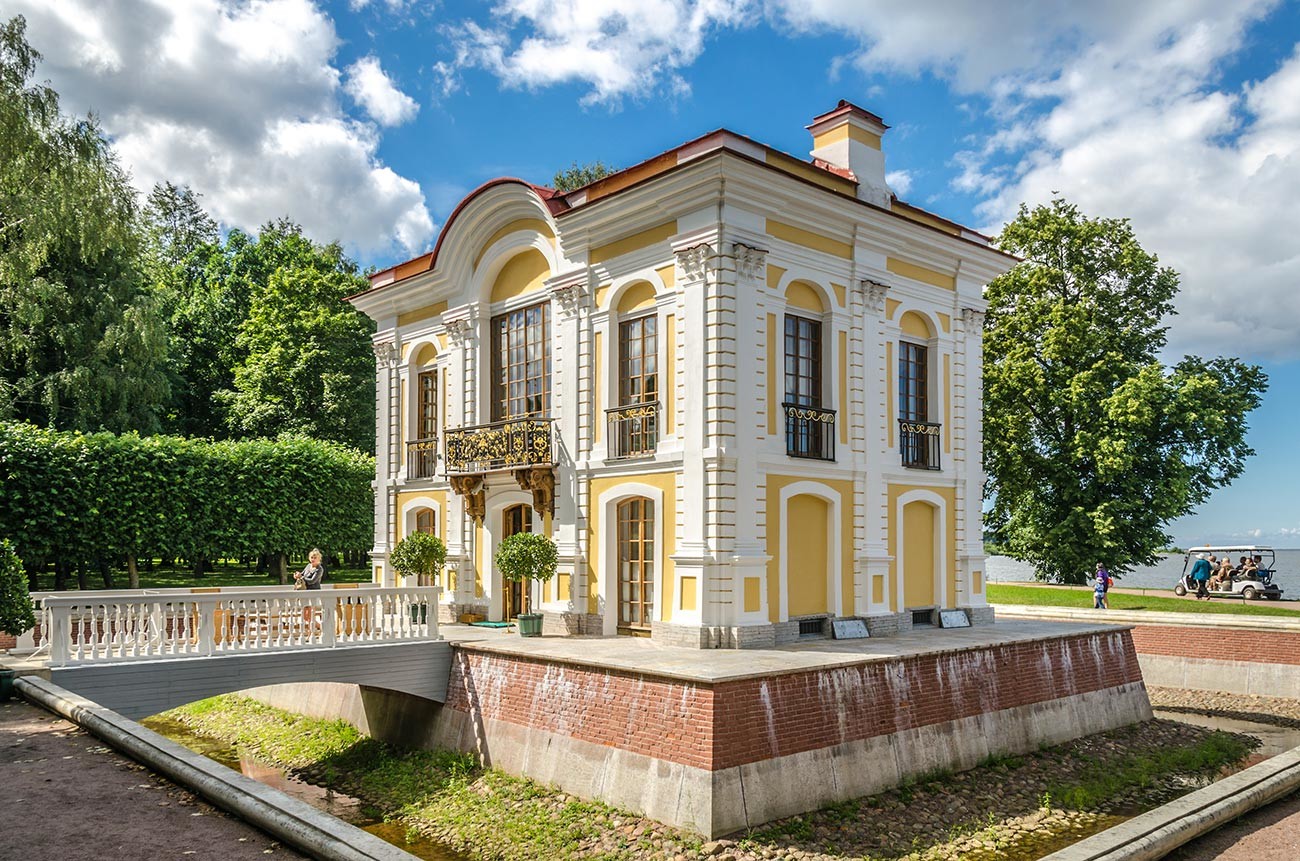
The Hermitage in Peterhof
Alex 'Florstein' Fedorov (CC by using-SA four.0)the first Hermitage in Russia (hyperlink in Russian) changed into inbuilt Peterhof, a suburb of St. Petersburg, on the orders of Peter the tremendous. "Hermitages" in these times were park pavilions designed for the exercise of the nobility – in these pavilions, the noble might "conceal" from their servants because the servants were best allowed as far as the primary floor of the building.
The leading characteristic of such hermitages (together with the Peterhof one) become an elevating mechanism used to lift meals organized through the servants from the first ground to the second – in order that the servants wouldn't have an opportunity to overhear their masters' dialog.

The fashioned elevating mechanism within the Peterhof Hermitage
Peterhof State Museum, RussiaPeter the first-rate and his chums dined in this Hermitage on a large number of occasions. They didn't yet talk fluent French between each and every other, but this story proved they vital one of these language. in case you're speaking tens of millions of rubles or millions of lives, you don't want your doorman or dishwasher woman to gossip about it. French grew to become this type of language for Russians. Why no longer English or German, if there were so many Germans within the Russian Empire?
2. French became the international language of politics in EuropeIn Europe of the contemporary Age (from 1500), Latin became the international language of science and diplomacy. The talents of this language, which is complicated and difficult to master, wonderful the highly trained individuals. Up unless the 18th century, Latin stayed the go-to language for scientists, but in international members of the family, French took its region.
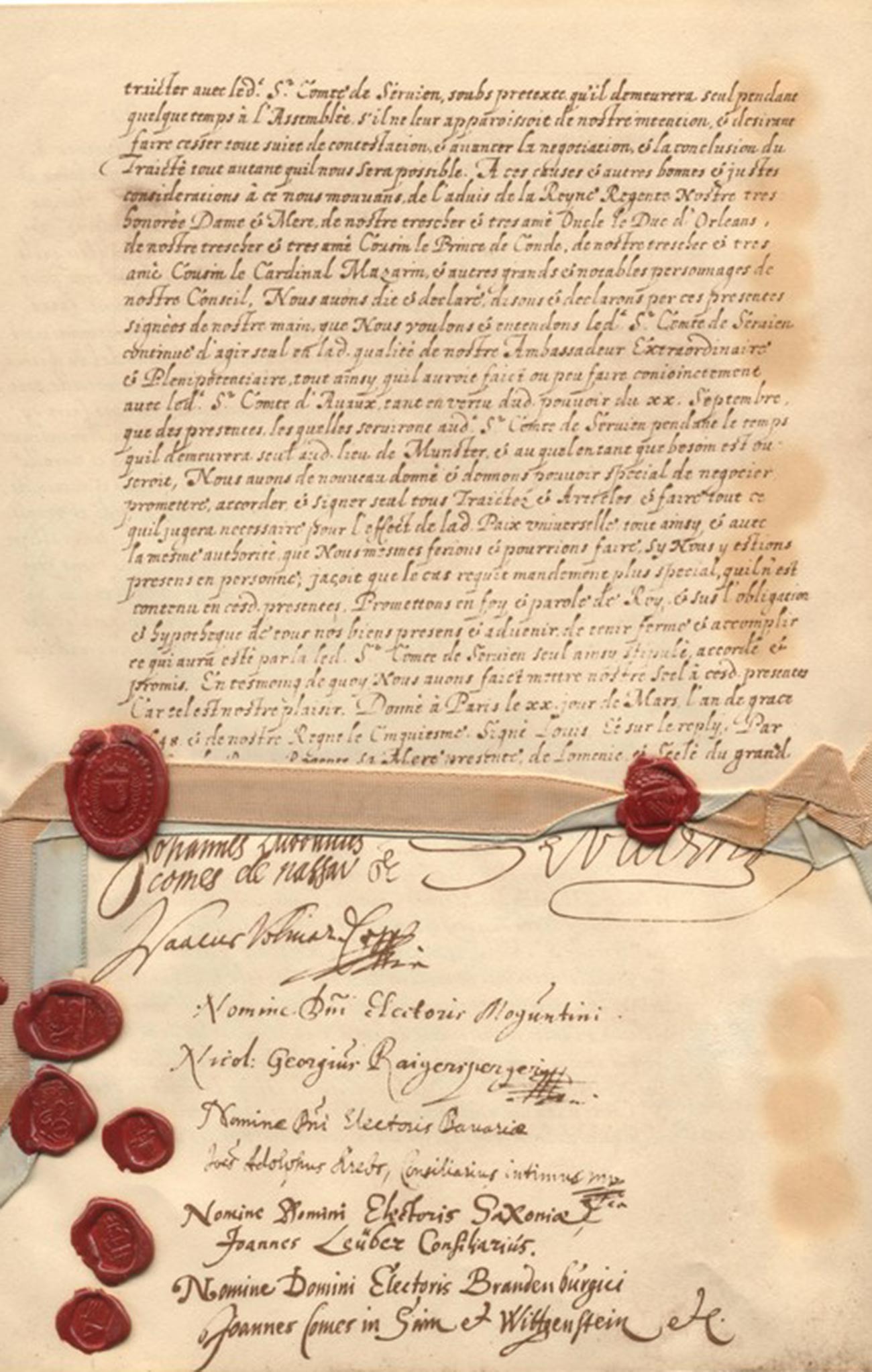
The closing page of the Peace of Westphalia Treaties, written in French
Public domainIn 1539, French changed into made the legit language of France, and a century later in 1635, the French Academy changed into centered to reform the French language. a group of definite grammatical rules was created, and in 1648, the Peace of Westphalia treaties grew to be the primary international files of such value written in French.
The Peace of Westphalia defined the brand new European fact of sovereign states – and one by which French changed into the new diplomatic language. From the mid-seventeenth century, Russian diplomats and scientists additionally begun getting to know French.
three. numerous French tutors flocked to Russia after the French Revolutionwithin the 18th century Russian Empire, most effective the richest could afford respectable European training for their toddlers with the aid of sending them overseas to examine. less demanding noblemen might invite a tutor from France – they were hired to live on the estates and look after their scholars. track, dancing, horse using, and social etiquette have been taught to both boys and girls; boys additionally practiced fencing, while ladies targeting the humanities.
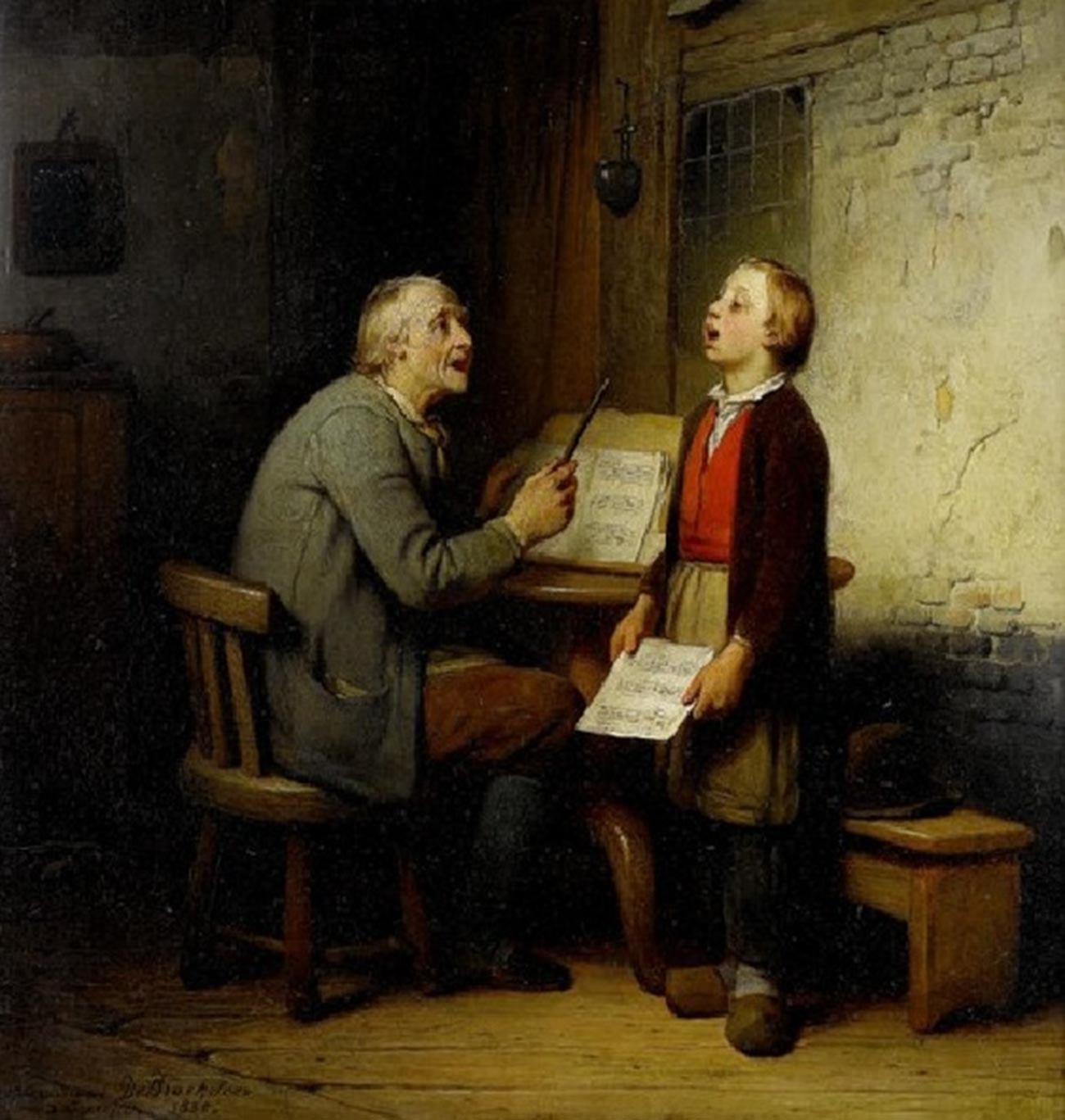
"The music Lesson," through Ferdinand de Braekeleer (1792-1883)
Ferdinand de Braekeleerearlier than the French Revolution, many of these tutors were petty criminals, fraudsters, and on the very least they didn't have a stronger schooling. as soon as in 1770, Russian historian Yury Lotman writes, a French envoy in St. Petersburg diagnosed his former coachman as one of the vital 'tutors' in St. Petersburg. Even worse – once an escaped French convict, branded like all French convicts with the fleur-de-lis, the heraldic lily of the Bourbons, posed in Russia as a herbal-born Bourbon prince – and very nearly married a nobleman's daughter, earlier than he changed into exposed by way of superior knowledgeable Russians.
The circumstance modified after the French Revolution, when an outstanding number of trained French individuals (together with committed monarchists) fled their home country, fleeing from the atrocities of the phobia. They have been welcomed within the Russian Empire, an absolute monarchy on the time, identical to France had been.
From the late 18th century, having a French-speakme tutor within the household grew to be a must for well-nigh any Russian noble household. Now, they have been more advantageous knowledgeable, and that they taught actual French and precise French manners. within the countryside, they taught in boarding schools, within the capitals, and with the richest noble households, they were hired as live-in tutors on the estates and manors.
4. potential of French wonderful the the Aristocracy from othersThe Russian nobility of the nineteenth century right away became extraordinarily fluent in French. for a lot of of them, similar to for Prince Dmitry Golitsyn, French became greater comfy than Russian. They additionally regarded as much as French way of life. About 70 % of books in a Russian nobleman's library had been in French. George Byron, William Shakespeare, Walter Scott, Heinrich Heine, and other European authors had been read through the Russians in French translations. only later in the nineteenth century English literature in its fashioned language joined the Russian nobleman's curriculum.
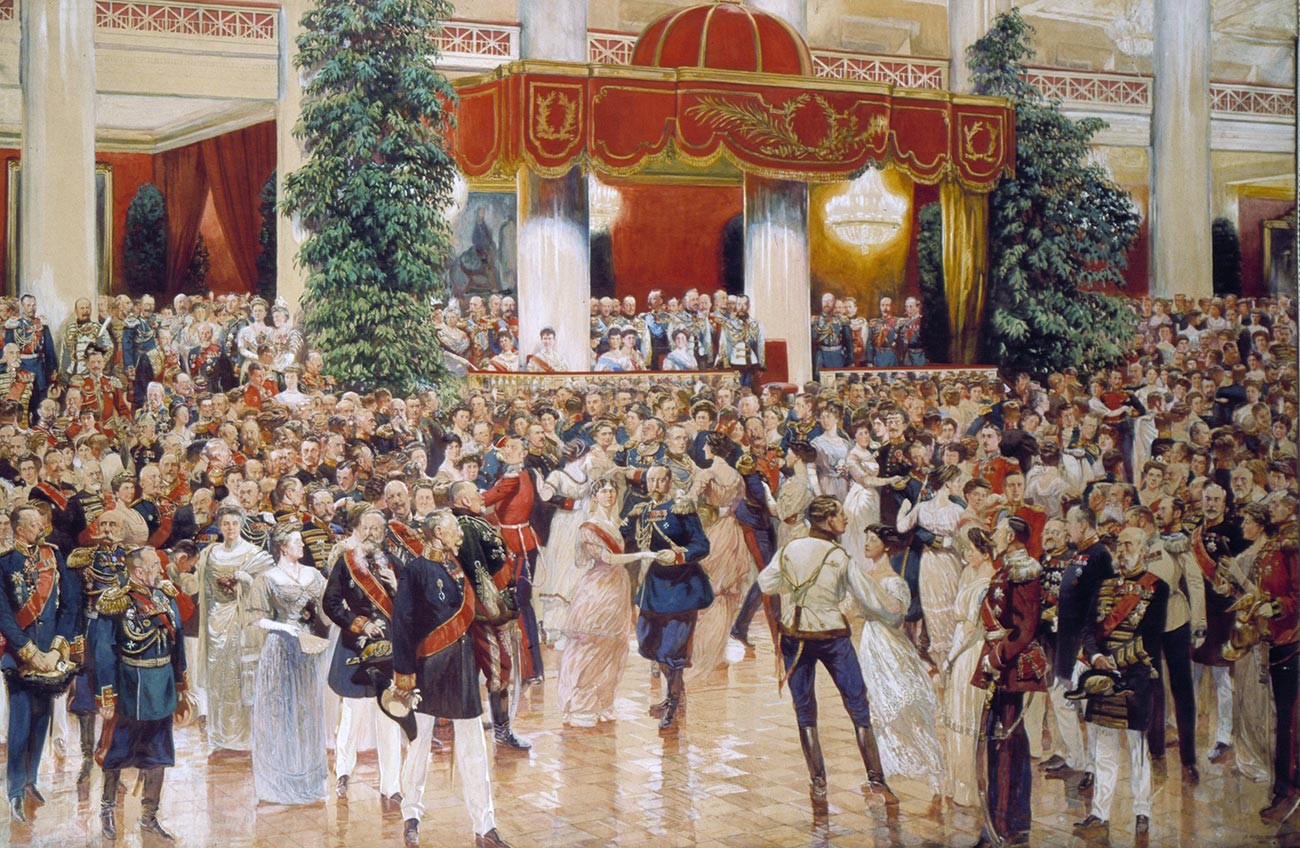
1913 ball, the Romanov Dynasty three hundredth anniversary
Dmitry KardovskyFrench changed into used solely in love letters and private correspondence, even after Nicholas I ordered all state files to be written in Russian most effective. Russian philologist Varvara Blinokhvatova notes that for the Russian the Aristocracy, the very fact of belonging to the French culture "justified" the existence of any work of literature or artwork. The Russian nobility of the nineteenth century can obviously be regarded bilingual. And the potential of French might right now permit them to respect one an extra – or spot an impostor among themselves.
mainly, the French mentioned the Russians' talent in their language and way of life. In Stendhal's The purple and the Black (1830), the protagonist, Julien Sorel, looks up to Prince Korazov, a Russian nobleman who teaches the younger Frenchman probably the most subtle manners and approaches of society. With Korazov, Julien "really obtained to grasp the meaning of elegant fatuity. He had struck up a friendship with some younger Russian nobles who initiated him," Stendhal wrote, proving that Russians in nineteenth century Europe had been truly the ones to elevate and retain high-classification way of life.
If using any of Russia past's content, partly or in full, at all times supply an lively hyperlink to the normal fabric.
No comments:
Post a Comment